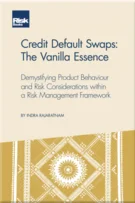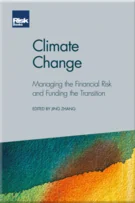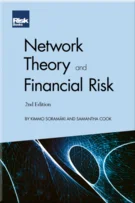Preface: Two economists’ views on the bank-sovereign linkage
Sam Wilkin
Preface: Two economists’ views on the bank-sovereign linkage
Introduction
Assessing Country Risk: A Practical Guide
Sovereign Risk: Characteristics, History and a Review of Recent Research
The Arab Spring: Insights for Political Risk Analysis
The Eurozone Crisis: The Forgotten Risks of Private and External Debt
How the Eurozone Crisis Became a Banking Crisis, and the Risk of Japanisation
The Changing Dynamics of Country Risk
Capital Flight as a Political Risk Indicator
Debt Crisis Indicators of Emerging Markets versus Eurozone Economies
How Much Economic Capital Could European Banks Save? The Case for Optimal Sovereign Risk Allocation
Fixing Fundamental Flaws in Probabilistic Country Risk Models
Have We Learned the Country Risk Management Lessons of the 1997 Asian Financial Crisis?
Using Systems Thinking to Enhance Country Risk Assessment
Approaches to the Quantification of Country Risk
Stress Testing Across International Exposures and Activities
Martin Wolf and Martin Hellwig in conversation with the editor Sam Wilkin
A theme that runs through this book is the importance of the bank–sovereign linkage. For instance, several authors contend that when an analyst looks at sovereign risk in a country, they must also assess the health of the country’s financial system because the government may be called upon to address a banking crisis, with a pernicious effect on sovereign creditworthiness. Other authors note the inefficiencies and risks that can result when sovereigns incentivise or compel banks to purchase the debt of their home government.
The global financial crisis has been followed by a global wave of regulatory reform. Measures enacted include, but are not limited to, bank resolution schemes, bonus reforms, ring-fencing initiatives, identification of global systemically important financial institutions and efforts to put in place a banking union in Europe. Have these measures reduced the risk of financial crises? Have they at least succeeded in reducing the risk that sovereign creditworthiness will be threatened by such crises?
To provide a basic guide to the current state of research and policy, I asked two
Copyright Infopro Digital Limited. All rights reserved.
As outlined in our terms and conditions, https://www.infopro-digital.com/terms-and-conditions/subscriptions/ (point 2.4), printing is limited to a single copy.
If you would like to purchase additional rights please email info@risk.net
Copyright Infopro Digital Limited. All rights reserved.
You may share this content using our article tools. As outlined in our terms and conditions, https://www.infopro-digital.com/terms-and-conditions/subscriptions/ (clause 2.4), an Authorised User may only make one copy of the materials for their own personal use. You must also comply with the restrictions in clause 2.5.
If you would like to purchase additional rights please email info@risk.net





